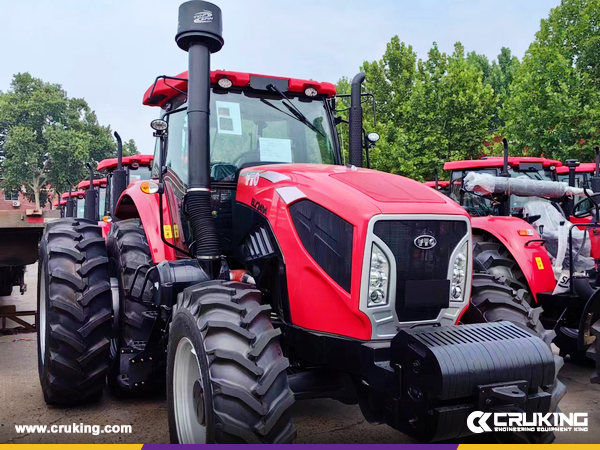Why does heavy equipment failure always seem to occur at the worst of times? When you least expect it, a big project is suddenly put on standstill because a particular machine doesn’t operate properly. The toughest part is that it will inevitably cost you money. And not just a little, but most likely, lots of it. The most common type of heavy equipment failures occurs with forklifts, bulldozers, scrapers, excavators, tractors, and more. Any equipment in your inventory can break down and have adverse effects on your site. Heavy equipment failure is not only stressful for managers, but also for operators and everyone else who’s a part of the team. To put a plan in place to prevent it, you first need to understand what the primary causes of these failures are.

1. Having Untrained Operators
In an ideal world, every operator in your team will receive adequate training on the equipment they use, before they use it. This training would include basic troubleshooting, operation, and the best safety procedures to adhere to when using the equipment. But what happens when you have unexpected absences, and you’re short-staffed? What happens when you have to get an operator from another team to handle a machine for which they haven’t received adequate training? Or when you have to outsource additional staff for a busy week? Untrained operators are a common cause of heavy equipment failure. As companies grow, it becomes increasingly challenging to ensure that every operator who works with the equipment has received sufficient training for it.
2. Ignore warning signs
What happens when something goes wrong with many of the machines we use? In most cases, a warning light will illuminate on the screen. Whether it's a signal of high engine temperature or low hydraulic pressure, these warning lights will signal to the operator that there is a problem with the machine. The problem is that operators often ignore or ignore these warning lights. Sometimes they plan to report the matter to their supervisor. However, they had been busy all day and forgot this. Failure to address warning signs and continuing to operate the machine will inevitably result in more damage to the equipment.
3. Overlooking Preventative Maintenance
As the name suggests, preventative maintenance is the regular maintenance of equipment, to reduce its chances of failing. It involves servicing, checks, and the repairing or replacing of parts of equipment to help prolong its lifespan. Most managers or supervisors understand how important preventative maintenance is. However, sometimes your team is overwhelmed or short-staffed, with a lot of work to do. Unfortunately, this is when preventative maintenance falls to the sideways. The team will assume that the equipment is working fine and that there is no harm from skipping a couple of maintenance days. But here’s the thing – regular equipment checkups can help your maintenance technicians identify small issues early and attend to these issues on time. Overlooking preventative maintenance will often result in facing costly heavy equipment failure in the future.
4. Overworking the Machinery
No good can come from overrunning any machine. However, sometimes, you will find your team overworking and pushing some devices to their limits. This often leads to the equipment either failing prematurely or at least straining the joints and not being able to perform at their optimum level anymore.
2021-06-27
2021-09-30
2021-01-13
2021-01-14
2021-08-10
2021-12-31
2021-12-14
2021-01-15